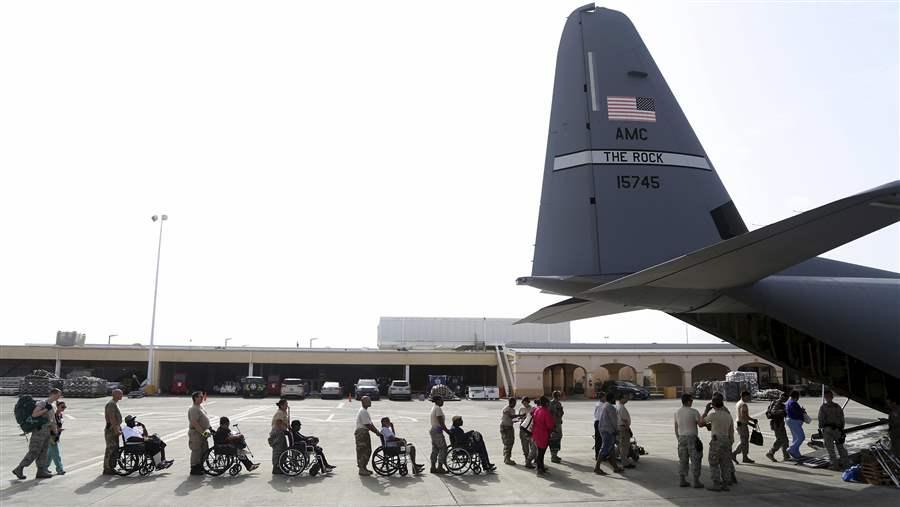Hurricanes Underscore Need to Improve Matching of Electronic Health Records
Emergencies add challenges to accessing patients’ medical data

Critically ill and injured patients are evacuated by the U.S. Air Force at the Henry E. Rohlsen Airport in St. Croix in the wake of two recent hurricanes, Hurricane Irma and Hurricane Maria.
© Douglass Clifford/Tampa Bay Times/AP
Hurricanes Harvey, Irma, and Maria not only forced millions of people to leave their homes, but they also disrupted health care for many caught in the paths of these storms. In addition to injuries sustained during the storm or evacuation, many people also need regular treatment for chronic or recurring illnesses. Delivering high-quality care to patients in the hardest-hit areas, or those forced to relocate, can be complicated by difficulties with matching displaced people with their medical records.
During Hurricane Katrina in 2005, only a quarter of American doctors used electronic records; now nearly all hospitals and most office-based practices do. Electronic health record (EHR) systems collect a patient’s medical history, medications, allergies, and other critical information. But patients who have been displaced by a disaster may need to seek care with a new provider. Others may be caring for the displaced, such as older relatives, and not know their full medical histories. The new providers may not be able to access those records, which could jeopardize their ability to provide care. For patients who are recovering from opioid addiction or receiving treatment for cancer, for example, missing a round of therapy can be devastating.
Ideally, if people need to seek care from new providers, their EHRs should be accessible, to minimize gaps in treatment. But even in normal circumstances, matching patients to their medical records can be challenging. By one estimate, up to half of all matches can be incorrect when providers seek data from other facilities. And mistaken identities and unmatched records can have serious health consequences.
When EHR systems cannot effectively share data with each other, due in part to challenges with matching, patients may have to rely on paper records, prescription bottles, and their memory for critical details. These difficulties can be exacerbated in emergencies.
Pew is researching the best ways to address patient matching and improve the interoperability of records systems. Possible solutions include using biometrics like palm scans to link patients to their records; standardizing the data elements used for matching, such as birthdates or addresses, so EHR systems can share and receive that information easily; and giving patients the ability to match their own records.
Better patient matching can improve the day-to-day care that individuals receive, but it can be especially critical during emergencies. Hurricanes Harvey, Irma, and Maria should spur the health information technology community to make improving patient matching a priority.
Ben Moscovitch manages the health information technology initiative for The Pew Charitable Trusts.








